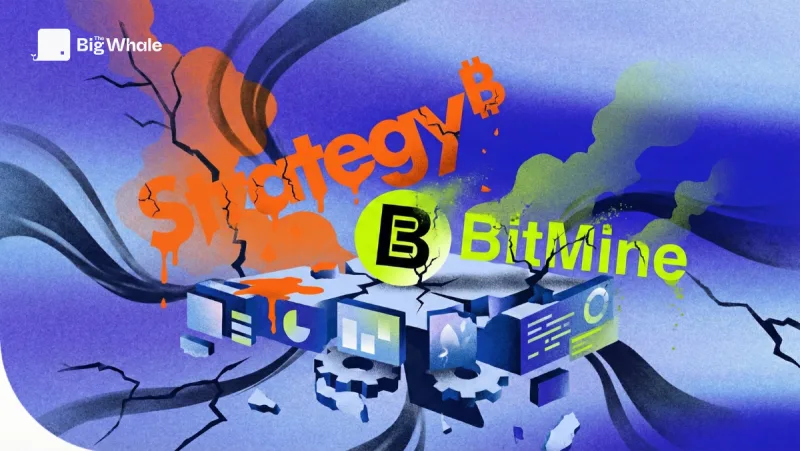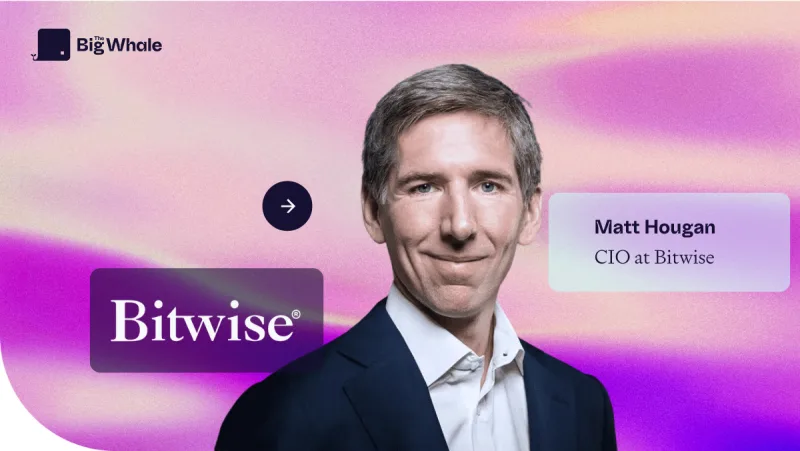TBW - Dominic Williams (DFINITY): "We're going to have AI agents that are both autonomous and auditable".
"We're going to have AI agents that are both autonomous and auditable".

For years, you have been campaigning with DFINITY for a convergence between AI and blockchain. What is the current status of the foundation and your Internet Computer project?
DFINITY is a non-profit foundation that is developing the Internet Computer, a new type of global computer.
The idea is to create a decentralised computing infrastructure capable of hosting applications directly on the Internet, without recourse to traditional servers or centralised clouds like Amazon or Google.
We want to reinvent the architecture of the Internet so that it is open, secure, accessible to everyone and, above all, capable of supporting large-scale, complex applications.
What makes the project original is the integration of an advanced blockchain that serves as a decentralised consensus layer, but also as a very fast distributed computing platform.
This infrastructure enables code to be executed in the blockchain with extremely low latency and almost unlimited scalability. This opens the door to a new generation of decentralised applications, particularly in computationally intensive fields such as artificial intelligence.
In the face of decentralisation challenges, how does your blockchain technically differ from existing solutions, and what is your response to criticisms of true decentralisation?
In contrast to traditional blockchains such as Bitcoin or Ethereum, which often rely on centralised servers in data centres owned by cloud giants such as Amazon Web Services, Internet Computer operates on a global network of physical nodes operated by independent providers.
These nodes are operated on "sovereign" hardware, which means that the infrastructure is completely decentralised, with no dependence on a single cloud provider.
This physical decentralisation guarantees technological independence, enhanced security and increased resilience.
Most importantly, our protocol has been designed to run large-scale applications and smart contracts, with very high performance, while retaining the transparency and trust characteristic of blockchain.
To what extent is the diversity and independence of your node providers guaranteed, and how do you avoid the risks of centralisation?
We have around a hundred node providers worldwide, operating dedicated machines to secure and run the network.
Among them, some financial institutions, such as Signum Bank in Zurich, play an important role. Signum is a crypto-friendly bank that provides several nodes for our network.
This shows that traditional players in the financial sector are taking an interest in this next-generation blockchain infrastructure.
Beyond the technical synergies, what are the strategic and societal challenges of the convergence between blockchain and AI that you are championing?
It's a revolution in the making. Blockchain offers a decentralised, transparent and secure infrastructure, while AI requires powerful and reliable computing capabilities. By combining the two, we can create AI agents capable of acting autonomously, intelligently and transparently thanks to blockchain. Pretty soon, we'll have AI agents that are both autonomous and auditable.
Our future product, Caffeine.ai, will be the world's first self-written platform specifically designed for artificial intelligence, built on the Internet Computer stack. This means that this platform will be able to generate and execute code autonomously, on a secure, decentralised and scalable infrastructure.
For businesses, from start-ups to major groups, this is a real leap forward: they will be able to develop AI solutions without depending on cloud giants, with better control over data, more transparency and increased security. This opens up unprecedented opportunities in sectors such as finance, insurance, healthcare and governance.
Why did you choose Zurich as your strategic hub, and how does this fit in with your long-term vision?
Zurich is a real technology hub with an exceptional density of talent, thanks in particular to ETH Zurich and the presence of major companies such as Google, IBM, Meta, OpenAI and Anthropic. It's an ideal city in which to set up a cutting-edge research and engineering centre.
We have more than 150 employees here in Zurich, in a seven-storey building. It's a collaborative workplace where much of our talent and technical know-how is concentrated. Switzerland, with its political stability and clear regulatory framework, is also conducive to crypto and innovation.
In the current geopolitical context, how does your European base influence your relations with regulators and governments?
We have exchanges with them, as we do with other governments around the world.
Faced with the domination of players like OpenAI or Mistral, what is your differentiation strategy, and how do you intend to make your mark on the AI market?
There are a huge number of use cases.
We're thinking of decentralised social networks, decentralised finance (DeFi), autonomous governance, but also cloud services without intermediaries, and of course the integration of AI into critical applications. For example, imagine recommendation systems, predictive analytics, or even virtual assistants that are totally decentralised and transparent.
When it comes to players like ChatGPT or Le Chat, we don't have the same infrastructure. Ours was designed to enable complex high-speed calculations to be carried out directly in the blockchain, which is nonetheless the infrastructure of the future.
The day after tomorrow, all companies such as banks, insurance companies or other businesses that want to build applications with AI and the advantages of crypto will be able to use us.
How can companies get involved in your ecosystem in practical terms, and what are your development objectives for the coming months?
We regularly organise events in Paris, Geneva, London and soon Zurich. These meetings bring together players in finance, tech and blockchain to exchange and collaborate.
We work with more than 70 companies, particularly in finance, insurance, and tech, who want to understand how to work with DFINITY and take advantage of the Internet Computer.



